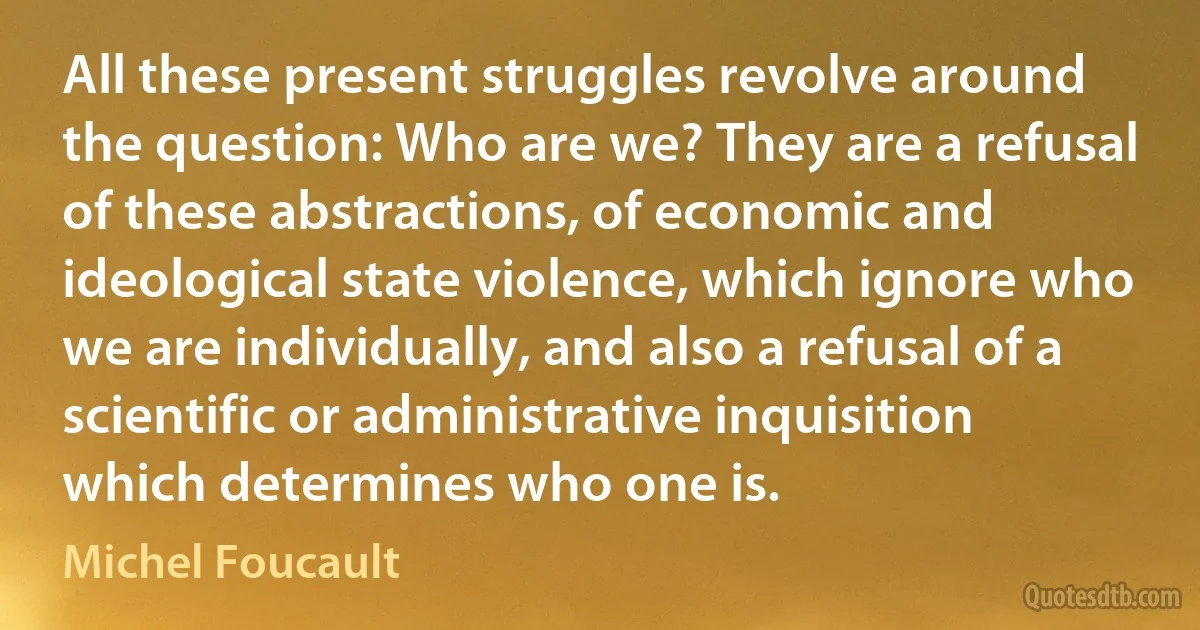Inquisition Quotes - page 2
And yet, I admit that the most infamous popes, the most heartless and fiendish bishops, friars, and priests were models of mercy, charity, and justice when compared with the orthodox God-with the God they worshiped. These popes, these bishops, these priests could persecute only for a few years-they could burn only for a few moments-but their God threatened to imprison and burn forever; and their God is as much worse than they were, as hell is worse than the Inquisition.

Robert G. Ingersoll
A Christian nation has never had the slightest respect for the rights of barbarians; neither has any Christian sect any respect for the rights of other sects. Anciently, the sects discussed with fire and sword, and even now, something happens almost every day to show that the old spirit that was in the Inquisition still slumbers in the Christian breast.

Robert G. Ingersoll
During my next visit with you, fellow-believers,” he said, "I shall tell you a parable about people who do things that they think God Almighty wants done. In the meanwhile, you would do well, for background on this parable, to read everything that you can lay your hands on about the Spanish Inquisition.

Kurt Vonnegut
Ultimate futility of such attempts to compel coherence is the lesson of every such effort from the Roman drive to stamp out Christianity as a disturber of its pagan unity, the Inquisition, as a means to religious and dynastic unity, the Siberian exiles as a means to Russian unity, down to the fast failing efforts of our present totalitarian enemies.

Robert H. Jackson
We who combat them are "the eternal enemies of order.". We are-for they can as yet find nothing but this worn-out word-we are demagogues. In the language of the Duke of Alva, to believe in the sacredness of the human conscience, to resist the Inquisition, to brave the state for one's faith, to draw the sword for one's country, to defend one's worship, one's city, one's home, one's house, one's family, and one's God, was called vagabondism... The man is a demagogue in the nineteenth century, who in the sixteenth would have been a vagabond.

Victor Hugo
They determined, once for all, to make an end of the spirit of freedom and emancipation, and to drive back and repress for ever the upward tendency of mankind. To undo the labour of twenty generations; to kill in the nineteenth century, by strangulation... Luther, Descartes, and Voltaire, religious scrutiny, philosophical scrutiny, universal scrutiny; to crush throughout all Europe this immense vegetation of free thought, here a tender blade, there a sturdy oak; ...to resuscitate all they could of the Inquisition, and to stifle all they could of intelligence; to stultify youth, in other words to brutalize the future;... to say to nations: "Eat and think no more;"

Victor Hugo
No doubt you know that Galileo had been convicted not long ago by the Inquisition, and that his opinion on the movement of the Earth had been condemned as heresy. Now I will tell you that all things I explain in my treatise, among which is also that same opinion about the movement of the Earth, all depend on one another, and are based upon certain evident truths. Nevertheless, I will not for the world stand up against the authority of the Church. ...I have the desire to live in peace and to continue on the road on which I have started.

René Descartes
I am called wise, for my hearers always imagine that I myself possess wisdom which I find wanting in others: but the truth is, O men of Athens, that God only is wise; and in this oracle he means to say that the wisdom of men is little or nothing... as if he said, He, O men, is the wisest, who like Socrates, knows that his wisdom is in truth worth nothing. And so I go on my way, obedient to the god, and make inquisition into anyone, whether citizen or stranger, who appears to be wise; and if he is not wise, then in vindication of the oracle I show him that he is not wise; and this occupation quite absorbs me, and I have no time to give either to any public matter of interest or to any concern of my own, but I am in utter poverty by reason of my devotion to the god.

Socrates
We've got jihadists. That doesn't mean that all Muslims are problems with respect to terrorism, but there is something going on here. We've got a problem dealing with one aspect of one portion of modern Islam - just as hundreds of years ago the world had a problem with Torquemada and the Spanish Inquisition.

James Woolsey
The second necessity for the Christians is that your Majesty establish the Holy Inquisition, because there are many who live according to the Jewish law, and according to the Mahomedan sect, without any fear of God or shame of the world. And since there are many spread all over the fortresses, there is the need of the Holy Inquisition and of many preachers. Your Majesty should provide such necessary things for your loyal and faithful subjects in India.

Francis Xavier
The worst reproach that Engels could make against the first English Marxists was that they were applying Marxism in a sectarian spirit. What would he have said, had he lived to see it, about a school of Marxists who after succeeding in capturing the state power proceeded to make a state religion of Marxism, a religion whose articles of faith and their interpretation are watched over by the government, a religion, the criticism of which, nay, the slightest deviation from which, is sternly punished by the State; a Marxism ruling by the methods of the Spanish Inquisition, propagated with fire and sword, practicing a theatrical ritual, as illustrated by the embalmed body of Lenin: a Marxism reduced to the status not only of a state religion but of a medieval or oriental faith? Such a Marxism may indeed be called a doctrinaire fanaticism.

Karl Kautsky
Perhaps, I can express more fully in verse ideas and emotions which run counter to the inert crystallized opinion - hard as a rock - which the vast body of men have vested interests in supporting. If Galileo had said in verse that the world moved, the inquisition might have let him alone.

Thomas Hardy
I remember reading an article about Frasier when it was going off the air – a very sad obituary from a TV writer who said that Frasier was such a smart show, and it was for the Mensa set. And he gave an example, where he quoted some line about a woman that Frasier thinks is very mean and he says, "Her idea of tough love is the Spanish Inquisition.”.

Louis C.K.
Bloody and hideous facts; acts of revolting superstition, arrests, and executions of stupid ferocity. "Burn every body!" the Inquisition seemed to say - God will easily sort out His own! Poor fools, hysterical women, and idiots were roasted alive, without mercy, for the crime of "magic."

Eliphas Levi



